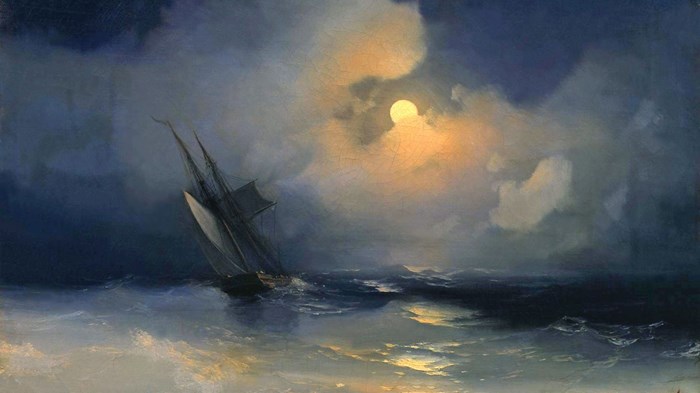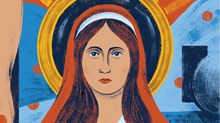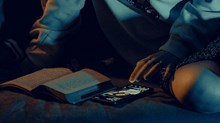
John Newton, the 18th-century reformed slave trader and famed author of Amazing Grace, frequently noted God's providence in delivering him from death. At the age of 12, for example, he took a dangerous fall from a horse. "I was thrown, I believe, within a few inches of a hedge-row newly cut down; I got no hurt; but could not avoid taking notice of a gracious providence in my deliverance; for had I fallen upon the stakes, I had inevitably been killed."
Many years later, while plying the African coast for slaves, Newton prepared to leave his ship to find supplies up one of the rivers. "I had taken leave of the captain, received his orders, was ready in the boat, and just going to put off, as we term it; that is, to let go our ropes, and sail from the ship. In that instant, the captain came up from the cabin, and called me on board again. I went, expecting further orders; but he said he had "taken it in his head" (as he phrased it), that I should remain that day in the ship, and accordingly ordered another man to go in my room [stead]. I was surprised at this, as the boat had never been sent away without me before; and asked him the reason. He could give me no reason, but as above, that so he would have it.
"Accordingly, the boat went without me, but returned no more. She sunk that night in the river, and the person who had supplied my place was drowned. I was much struck when we received the news of the event the next morning. The captain himself, though quite a stranger to religion, so far as to deny a particular providence, could not help being affected; but he declared, that he had no other reason for countermanding me at that time, but that it came suddenly into his mind to detain me. I have always thought it one of the most extraordinary circumstances of my life."
"Lord, Have Mercy"
Many of these deliverances left little lasting imprint on Newton's conscience. But in March, 1748, he met with a menacing sea-storm that shattered his self-confidence—and drove him to admit the hand of God in his life. "I went to bed that night in my usual security and indifference, but was awaked from a sound sleep by the force of a violent sea which broke on board us; so much of it came down below as filled the cabin I lay in with water. This alarm was followed by a cry from the deck, that the ship was going down or sinking. As soon as I could recover myself, I essayed to go upon deck; but was met upon the ladder by the captain, who desired me to bring a knife with me. While I returned for the knife, another person went up in my room [stead], who was instantly washed overboard. We had no leisure to lament him, nor did we expect to survive him long, for we soon found the ship was filling with water very fast."
"At the beginning of this hurry [to bail ship] I was little affected. I pumped hard, and endeavored to animate myself and my companions: I told one of them, that in a few days this distress would serve us to talk of over a glass of wine; but he, being a less hardened sinner than myself, replied, with tears, 'No; it is too late now.' About nine o'clock, being almost spent with cold and labor, I went to speak with the captain, who was busied elsewhere, and just as I was returning from him, I said, almost without any meaning, 'If this will not do, the Lord have mercy on us.' This (though spoken with little reflection) was the first desire I had breathed for mercy for the space of many years."
Nevertheless, Newton's life did not change dramatically, and he admitted to slipping into his previous lifestyle until "I seemed to have forgotten all the Lord's mercies, and my own engagements, and was (profaneness excepted) almost as bad as before. … At length the Lord, whose mercies are infinite, interposed in my behalf. My business in this voyage, while upon the coast, was to sail from place to place in the long-boat to purchase slaves. The ship was at Sierra Leone, and then at the Plantanes, the scene of my former captivity, where everything I saw might seem to remind me of my ingratitude. I was in easy circumstances, courted by those who formerly despised me. The lime trees I had planted were growing tall, and promised fruit the following year; against which time I had expectations of returning with a ship of my own. But none of these things affected me, till, as I have said, the Lord again interposed to save me. He visited me with a violent fever, which broke the fatal chain, and once more brought me to myself.
"Weak, and almost delirious, I arose from my bed, and crept to a retired part of the island; and here found a renewed liberty to pray. I durst make no more resolves, but cast myself before the Lord, to do with me as he should please. I do not remember that any particular text, or remarkable discovery, was presented to my mind; but in general I was enabled to hope and believe in a crucified Savior. The burden was removed from my conscience, and not only my peace, but my health was restored; I cannot say instantaneously, but I recovered from that hour; and so fast, that when I returned to the ship, two days afterwards, I was perfectly well before I got on board. And from that time, I trust, I have been delivered from the power and dominion of sin."
Read more of Newton's autobiography online. Christian History & Biography Issue #81,John Newton contains further information.
Copyright © 2007 Christian History & Biography, or the author. Click for reprint information.

Support Our Work
Subscribe to CT for less than $4.25/month




























